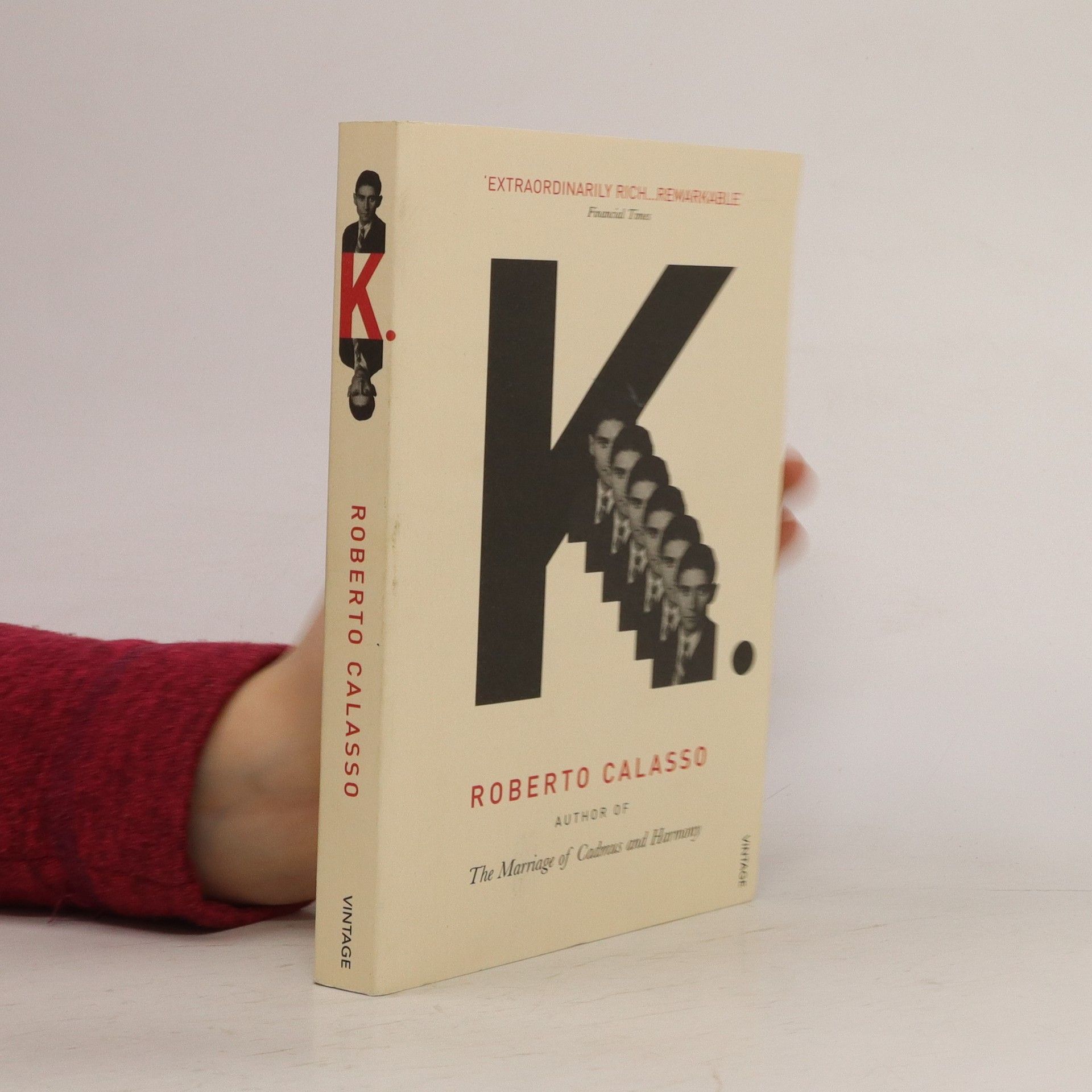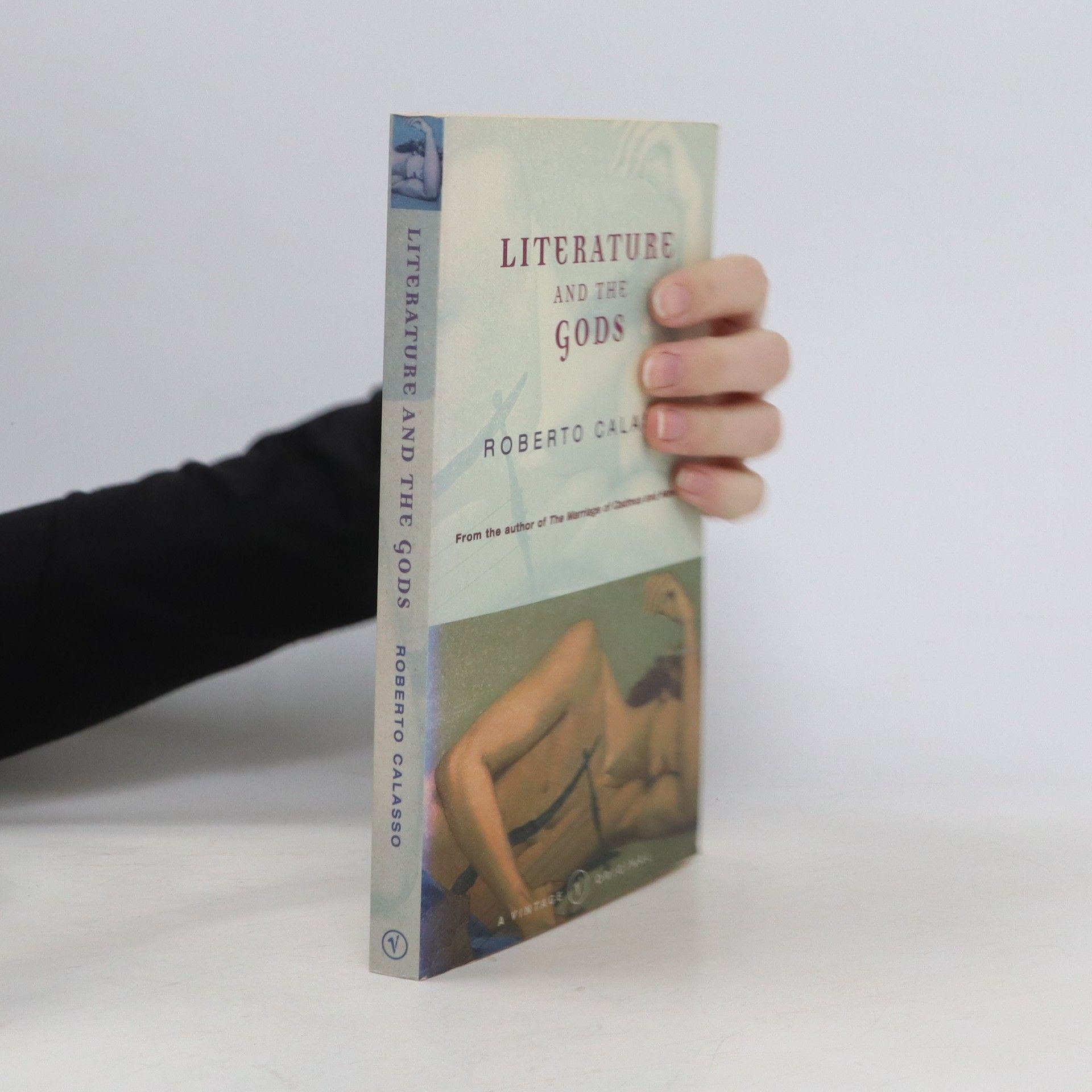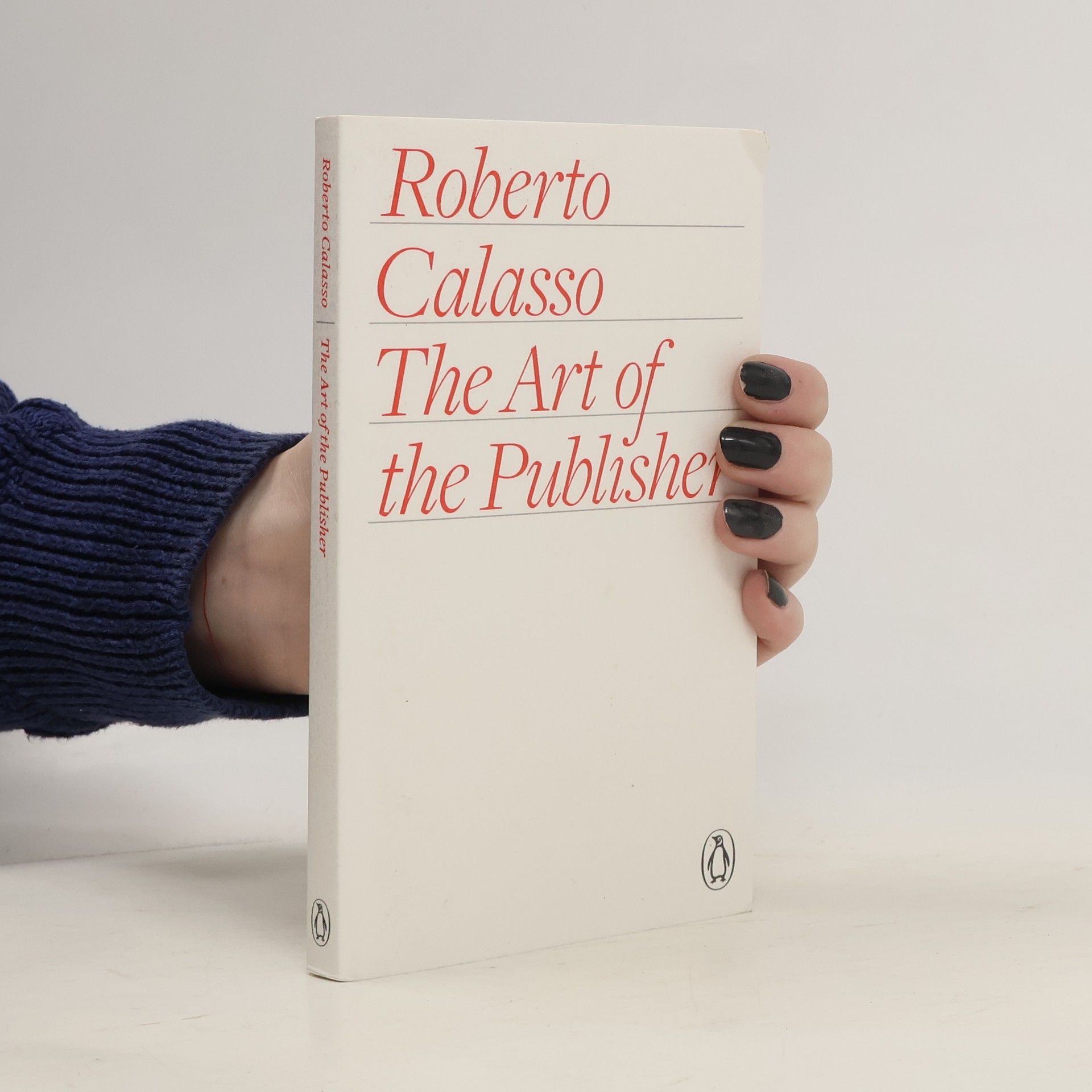'When hunting began, it was not a man who chased an animal. It was a being that chased another being. No one could say with certainty who each of them were.' Connecting Greek and Egyptian myth, the stories of poets, shamans and gods, Roberto Calasso takes us on a spellbinding voyage that traces the beginnings of our detachment from the animal world; from the landmark evolutionary moment in which humans became the hunter rather than the prey. Roaming through time and across cultures - from the Palaeolithic era to Turing's Machine - The Celestial Hunter delves into the crucible of all our stories- the source of human grief, guilt, resilience and redemption with which we have wrestled throughout history.
Roberto Calasso Livres
Roberto Calasso fut un éditeur et écrivain italien dont les œuvres ont plongé dans les profondeurs de la culture et de la mythologie européennes. Son écriture, souvent inspirée par des récits classiques et des figures littéraires, explore les liens entre le monde antique et le monde moderne. Calasso mêle de manière magistrale des thèmes complexes à un style saggistique unique qui invite les lecteurs à réfléchir sur la nature de la modernité et l'héritage de la civilisation. Son influence sur le paysage littéraire et intellectuel est indéniable, faisant de lui une figure centrale de l'essai contemporain.


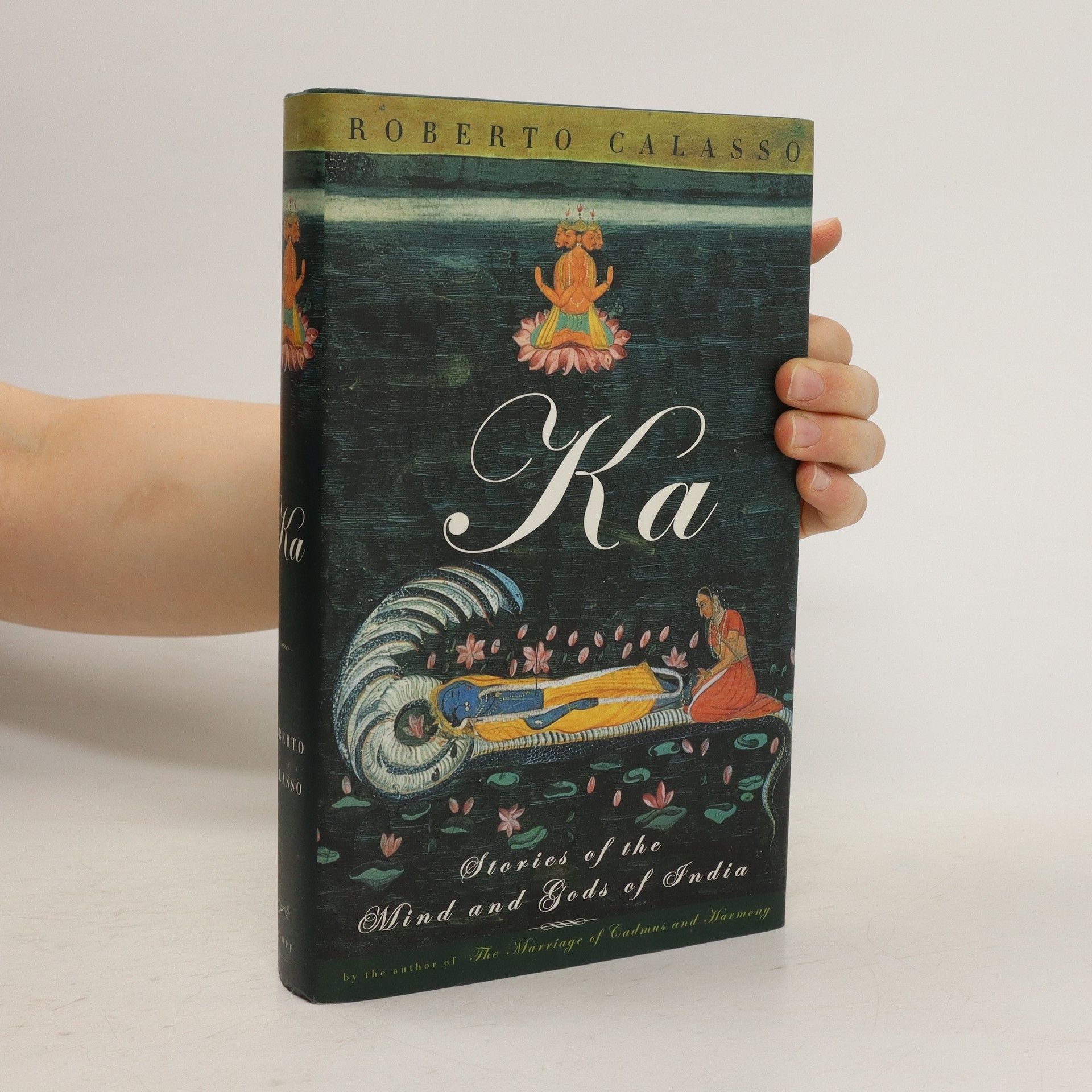


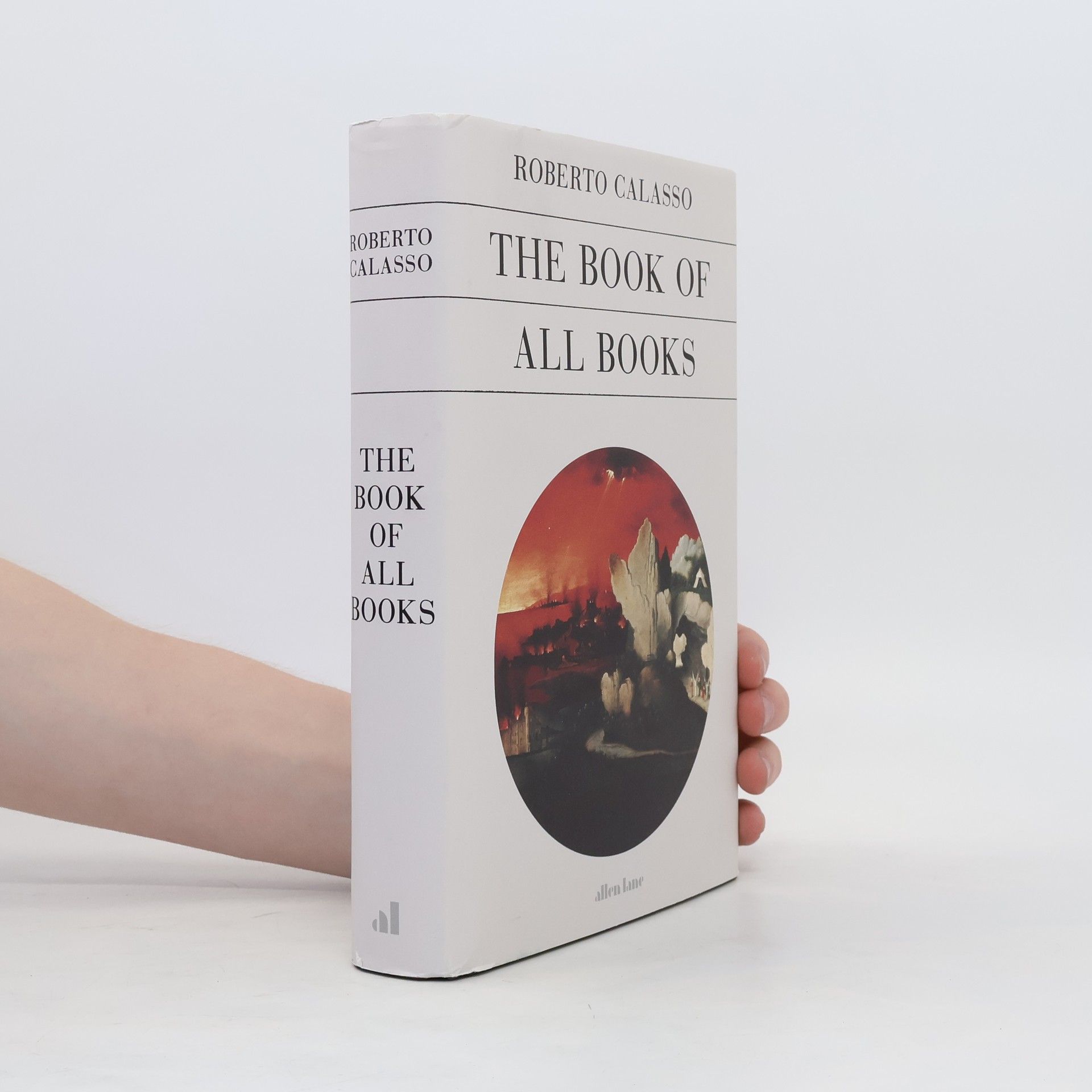

A splendid reimagining of key stories from the Bible, by the author of The Marriage of Cadmus and Harmony. A man named Saul is sent to search for some lost donkeys and on the way is named king of his people. The queen of a remote African realm travels for three years with her multitudinous retinue to meet the king of Jerusalem and pose him a few riddles. A man named Abraham hears a divine voice speaking words that reverberate throughout the Bible: 'Go away from your land, from your kindred and from the house of your father toward the land that I will show you'. In The Book of All Books, Roberto Calasso weaves together stories of promise and separation from one of the founding texts of Western civilisation. These tales of grace and guilt, of the chosen and the damned, cast many Biblical figures and indeed the whole book in a light as astonishing as it is disquieting. The Book of All Books is part of a larger work which began with The Ruin of Kasch (1983) and includes The Marriage of Cadmus and Harmony, Ka, and The Celestial Hunter.
Tiepolo Pink
- 304pages
- 11 heures de lecture
"Throughout his masterpiece, In Search of Lost Time, Proust repeatedly refers to colours as Tiepolo Pink or Tiepolo Red. Who exactly was the artist that he so memorable transformed into colour? The eighteenth-century Venetian painter Giambattista Tiepolo spent his life executing commissions in churches, palaces and villas, creating frescoes that are among the glories of Western art. The life of an epoch swirled around him - but though his contemporaries admired him, they failed to understand him. Few have attempted to tackle Tiepolo's series of bizarre and haunting etchings, but Roberto Calasso rises to the challenge, interpreting them as chapters in a dark narrative that contains the secret of Tiepolo's art. Blooming ephebes, Oriental sages, owls, snakes- we will find them all within the pages of this book, along with Venus, Time, Moses, angels, Cleopatra and Beatrice of Burgundy - a gypsyish company always on the go. Calasso makes clear that Tiepolo was more than a dazzling intermezzo in the history of painting. Rather, he represented a particular way of meeting the challenge of form- endowed with a seemingly effortless style, Tiepolo was the last incarnation of that peculiar Italian virtue sprezzatura, the art of not seeming artful"--Publisher's description.
The Unnamable Present
- 208pages
- 8 heures de lecture
Tourists, terrorists, secularists, hackers, fundamentalists, transhumanists, algorithmicians- in this book Roberto Calasso considers the tribes that inhabit and inform the world today. A world that feels more elusive than ever before. Yet once contrasted with the period between 1933 and 1945, when the world made a partially successful attempt at self-annihilation, the new millennium begins to take on an unprecedented form. What emerges is something illusory, ever-shifting and occasionally murderous- the unnamable present. This book, the ninth part of a work in progress,is a meditation on the obscure and ubiquitous process of transformation happening in societies today, where distant echoes of Auden's The Age of Anxiety give way to something altogether more unsettling.
Ka
- 443pages
- 16 heures de lecture
Roberto Calasso narrates the birth of one of the world's great cultures: the formation of the mind of India. He doesn't explain or describe this mental world - he regenerates it through its epic cyclical stories and customs, until we no longer need to define it for ourselves because we have come to know what it is. So: Who is Ka? And who is the immense eagle asking the question, filling the sky, elephant and giant turtle dwarfed in his claws? How can he be the child of a woman? Who are the tiny folk he eats? The first impact of Ka is one of tremendous strangeness, bewilderment, disorientation. How can a Western tradition which demands to identify a beginning and an end understand one that sees no beginning and no end, but only an eternal tangle? Slowly, though, the strange becomes familiar, as new and ever more fantastic stories are spun out, gods emerge, bizarre sacrifices are performed. Rejecting our cravings to have the culture systematized and predigested for us, Calasso invites us to understand India on Indian terms, through Indian images, through India itself. As Ka unfolds, the worlds of the Devas, of Siva, Brahma and Visnu, of the wars of the Mahabharata, are splendidly revealed, until finally, with the advent of the Buddha, we are amazed at our own sense of recognition, for these stories seem to confirm, or to articulate for the first time, our own deepest perceptions about our human condition.
La Folie Baudelaire
- 368pages
- 13 heures de lecture
With Baudelaire's critical intelligence as his inspiration, the author ranges through his life and work, focusing on two painters - Ingres and Delacroix - about whom Baudelaire wrote acutely, and then turns to Degas and Manet, who followed in the tracks Baudelaire laid down in his great essay The Painter of Modern Life.
K.
- 336pages
- 12 heures de lecture
What are Kafka's stories about? Are they dreams? Allegories? Symbols? Things that happen every day? But where and when? Countless answers have been offered, but the question still arouses feelings of acute uncertainty. Many solutions have been proposed, but the essential mystery remains intact. In this remarkable book, Roberto Calasso sets out not to dispel the mystery but to let it be illuminated by its own light. To that end, with his unique vision, imagination, and intellectual acumen, Calasso attempts to enter the flow, the tortuous movement, the physiology of the stories to discover what they are meant to signify and to delve into the most basic question along the way- Who is K.'The culmination of the author's lifelong fascination with Kafka, K. is a book of significant literary importance, the fourth part in a work in progress of which the previous volumes are THE RUIN OF KASCH, THE MARRIAGE OF CADMUS AND HARMONY, and KA.
This title traces the return of pagan divinities to Western literature from their first reappearance at the beginning of the modern era to their place in the literature of our own time. It seeks to deepen our understanding of our literary tradition.
The Ruin of Kasch
- 432pages
- 16 heures de lecture
The Ruin of Kaschtakes up two subjects- "the first is Talleyrand, and the second is everything else," wrote Italo Calvino when the book first appeared in 1983. Hailed as one of those rare books that persuade us to see our entire civilization in a new light, its guide is the French statesman Charles-Maurice de Talleyrand, who knew the secrets of the ancien rUgimeand all that came after, and was able to adapt the notion of "legitimacy" to the modern age. Roberto Calasso follows him through a vast gallery of scenes set immediately before and after the French Revolution, making occasional forays backward and forward in time, from Vedic India to the porticoes of the Palais-Royal and to the killing fields of Pol Pot, with appearances by Goethe and Marie Antoinette, Napoleon and Marx, Walter Benjamin and Chateaubriand. At the centre stands the story of the ruin of Kasch, a legendary kingdom based on the ritual killing of the king and emblematic of the ruin of ancient and modern regimes.
The Art of the Publisher
- 160pages
- 6 heures de lecture
'All the books published by a certain publisher could be seen as links in a single chain' In this fascinating memoir and manifesto the author and publisher Roberto Calasso meditates on the art of book publishing. With his signature erudition and polemical flair, Calasso transcends Adelphi to look at the publishing industry as a whole, from the essential importance of graphics, jackets and cover flaps to the consequences of universal digitization. And he outlines what he describes as the 'most hazardous and ambitious' profile of what a publishing house can be: a book comprising many books, akin to that of other twentieth-century publishers, from Giulio Einaudi to Roger Straus, of whom the book offers brief portraits.
